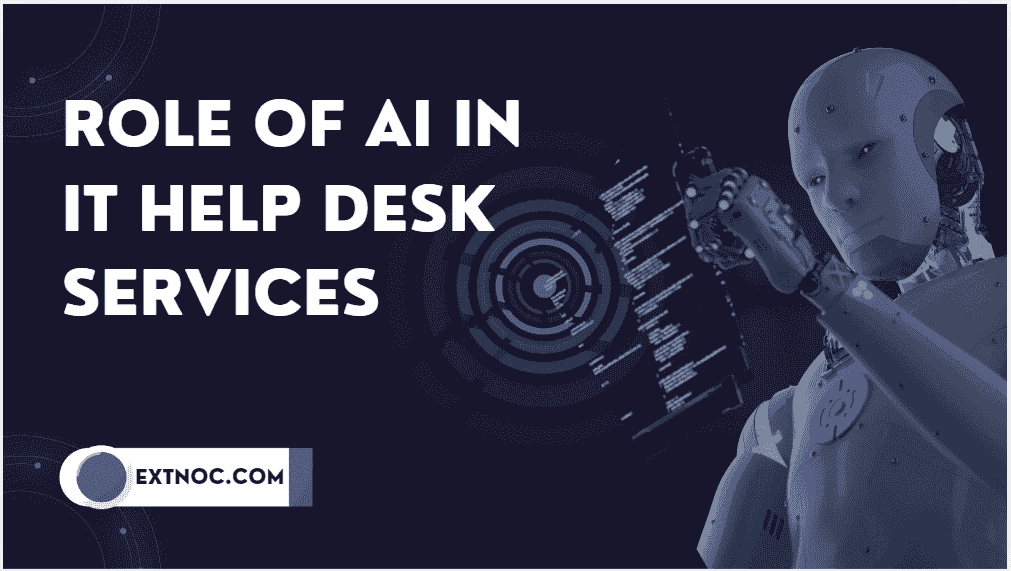


AI is rapidly transforming IT help desk services, offering businesses the ability to automate repetitive tasks, improve customer satisfaction
In today’s technology-driven world, businesses are increasingly relying on Artificial Intelligence (AI) to revolutionize their operations. One area where AI has made significant strides is in IT help desk services. The integration of AI not only improves the efficiency of help desk operations but also enhances customer satisfaction and reduces operational costs. This article explores how AI is transforming IT help desks and the key benefits businesses can gain from its adoption.
One of the key advantages of AI in IT help desks is its ability to automate repetitive tasks. Traditionally, help desks have relied on human agents to handle every request, which can lead to bottlenecks during busy periods. AI addresses this challenge by automating routine tasks such as password resets, basic troubleshooting, and software updates.
AI systems use machine learning to identify and resolve common issues without the need for human intervention. This not only frees up help desk agents to focus on more complex tasks but also drastically reduces wait times for customers. The result is a smoother, more efficient help desk process.
A key component of any successful help desk service is customer satisfaction. AI-powered chatbots and virtual assistants have become integral to delivering a high-quality customer experience. Unlike human agents, AI chatbots can provide instant responses to queries, operate 24/7, and handle multiple interactions simultaneously.
By engaging with customers in real-time, AI ensures that issues are addressed quickly. If a problem requires escalation, AI gathers all relevant information before passing the case to a human agent. This reduces the time agents spend gathering basic data, allowing them to focus on resolving more complex issues, thereby improving overall customer satisfaction.
AI also introduces predictive analytics to IT help desks, enabling proactive support. AI systems continuously monitor the performance of IT systems and can predict potential failures before they occur. For example, AI algorithms can analyze system logs and detect anomalies that could lead to hardware malfunctions or software crashes.
This proactive approach allows businesses to prevent issues from escalating into significant problems, reducing downtime and maintaining smooth operations. Additionally, by leveraging AI’s ability to analyze historical data, IT teams can identify trends, anticipate future problems, and improve resource allocation for faster issue resolution.
Another substantial benefit of incorporating AI into IT help desks is cost savings. AI can significantly reduce operational costs by automating simple tasks that would otherwise require human intervention. This allows businesses to operate with smaller support teams, focusing human resources on high-priority or complex issues.
AI also reduces downtime by detecting and resolving potential issues before they affect business operations. The cost of downtime can be immense for businesses, especially in highly technical industries. By minimizing disruptions, AI ensures smoother operations and reduces the financial impact of IT issues.
Data security is a critical concern for businesses, especially when dealing with customer information. AI can enhance cybersecurity in IT help desks by identifying anomalies or security breaches in real-time. For example, AI can detect unauthorized access attempts, phishing attacks, or malware, and alert IT teams to take swift action.
However, AI also presents potential security risks, particularly when handling sensitive data. Ensuring that AI systems comply with data protection regulations is essential. Businesses must adopt rigorous security protocols and maintain transparency in their data handling processes to build trust with customers.
Despite the numerous benefits of AI, businesses may face challenges in implementing AI in their IT help desks. One challenge is ensuring proper integration with existing IT systems. AI tools must be seamlessly incorporated into the existing infrastructure to avoid disruptions in service.
AI is transforming the landscape of IT help desk services, offering benefits like improved efficiency, enhanced customer satisfaction, cost reduction, and proactive support. As businesses continue to embrace AI-driven solutions, it’s crucial to explore how AI fits within their operational framework and ensure that their teams are trained to leverage these technologies effectively.
For businesses looking to improve their help desk operations, learning more about the Features of Help Desk Automation can provide further insights into how AI can be fully utilized to drive innovation and streamline workflows.
